Dubbed the “cities COP” in its first week by some because of a defining focus on local governments, the United Nations’ COP28 climate conference saw more than 200 mayors, county commissioners, and other local elected officials gather from around the world at an event largely intended for national governments.
Among them were 35 U.S. city and county leaders — the largest delegation of local leaders from the United States since the 2015 COP, when the Paris Agreement was born. ICLEI, in its role as the focal organization to the UNFCCC (the UN’s climate body) for cities and regions, was among the networks helping to prepare mayors in their travels to this COP’s host city, Dubai, and support their advocacy efforts across the COP’s two weeks.
The UN hosts the COP annually, but this year’s event had a special recognition, taking place during the Paris Agreement’s “Global Stocktake” year, when nations reported on their progress toward meeting the agreement’s goal of limiting global average temperatures to warming no more than 1.5 degrees C. Local leaders showed up, in part, to push for a strong outcome from the Global Stocktake.

Why Was COP28 the “Cities COP”?
Alongside the Global Stocktake moment, two key city-focused events bookended the first week of COP, compounding the
- December 1 – 2: The Local Climate Action Summit, hosted by Special Envoy Michael Bloomberg with the COP28 Presidency
- December 6: The second Climate & Urbanization Ministerial paired nations with their local governments for a ministerial-level event capping off Week 1.
- December 6: For the first time, the COP Presidency designated a “Multilevel Action, Urbanization, and Built Environment” Day (aka “Cities Day”).
- The ICLEI-managed Local Governments and Municipal Authorities (LGMA) Multilevel Acton Pavilion will continue as the “home for cities and regions at COP28,” hosting more than 70 sessions.
- The Coalition for High-Ambition Multilevel Partnerships (CHAMP) pledge was endorsed by 70 nations during COP28
- In the leadup to COP, 26 global cities hosted “local stocktake” contributing events to the Paris Agreement’s Global Stocktake process.
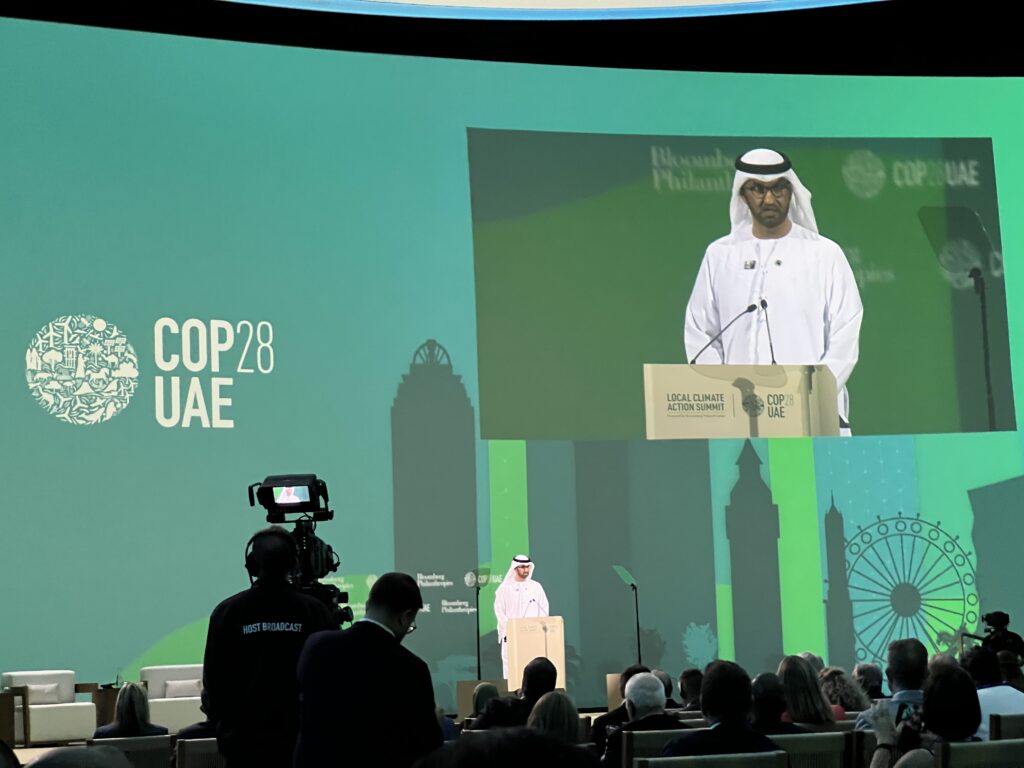
To bring the Local Climate Action Summit (LCAS) to life, Bloomberg Philanthropies and the COP28 Presidency worked for several months with partner networks, including ICLEI, to mobilize mayors from around the globe and plan nearly two days of city-focused activities, covering energy, health, nature, transport, and more themes. A central moment for the LCAS was also a COP first: local leaders claimed the COP Plenary Room, historically reserved only for heads of state, for an hour-long locally focused session. Mayor of Des Moines, Iowa, Frank Cownie, was among about a dozen invited mayors to attend the head-of-state portion of the COP opening.
How U.S. Cities Advocate in the Paris Agreement Process
The LCAS brought mayors into the plenary for the first time, but the voice of cities has been represented at COPs for decades. The Local Governments and Municipal Authorities constituency, or LGMA, serves as the official liaison on behalf of cities to the UNFCCC processes. On the ground at COP28, ICLEI and the LGMA continued this advocacy by working with U.S. mayors and county commissioners in a few key ways.
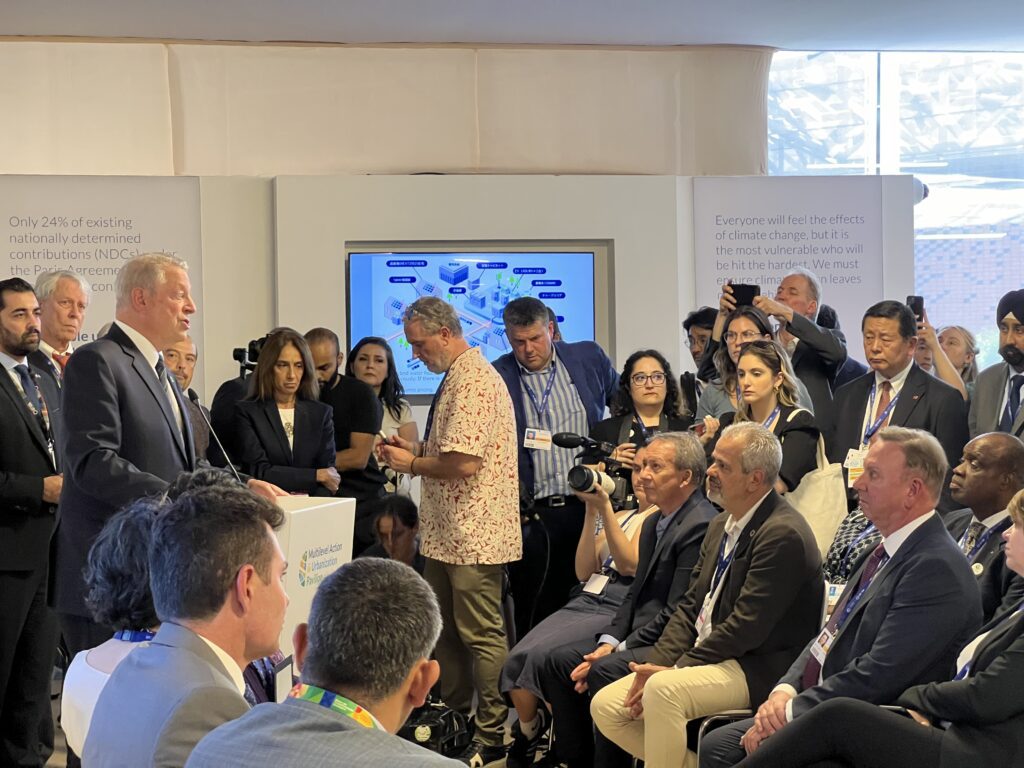
Linking Local Contributions to National Paris Agreement Plans
Importantly, the Paris Agreement is made between “Parties” (national governments) to the agreement. As such, cities and regions cannot directly negotiate changes or updates to the agreement — but they can speak with national delegates who can. We facilitated meetings between U.S. mayors and delegates from the United States negotiating team.
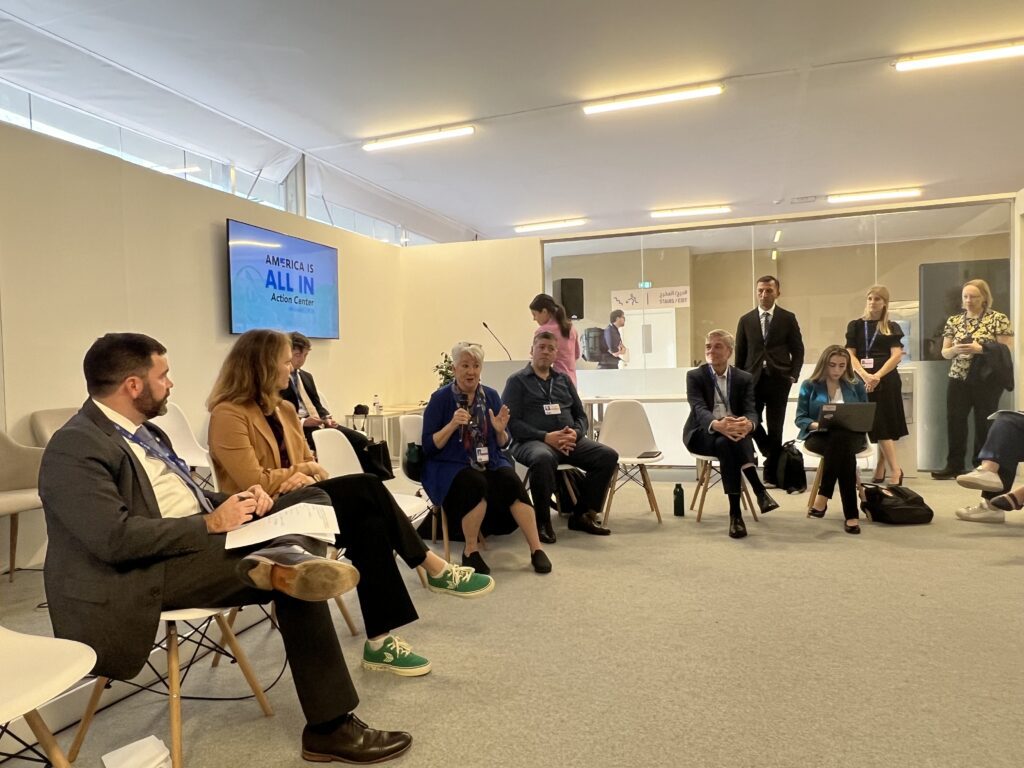
In these influential discussions, U.S. mayors asked our federal partners to ensure “multilevel action” and the enabling power of local governments is recognized in COP28’s most important texts:
- The Global Stocktake Outcomes Report
- The Global Goal on Adaptation
- The Loss-and-Damage Fund approval
Besides speaking with negotiators, a few UNFCCC sessions welcome direct intervention from LGMA local government representatives. In a couple of firsts, the Mayor of Hoboken, New Jersey, and ICLEI USA Board Member, Ravi Bhalla, intervened on behalf of all cities in the first-ever Dialogue on a Just Energy Transition — the first time LGMA was moved to speak first in order to set the tone for the Parties. Mayor Bhalla shared how his city is electrifying buildings in ways that lower the energy cost burden on all residents.
Finally, in the U.S. cities can contribute to the next NDCs (National Paris Agreement plans) in a data-driven way. The U.S. can lead by linking local-level ICLEI ClearPath tool data to the U.S.’s next NDC, which is due in 2025. Commissioner of Travis County, Texas, and ICLEI USA Board Chair, Brigid Shea, spoke to this across a number of sessions.
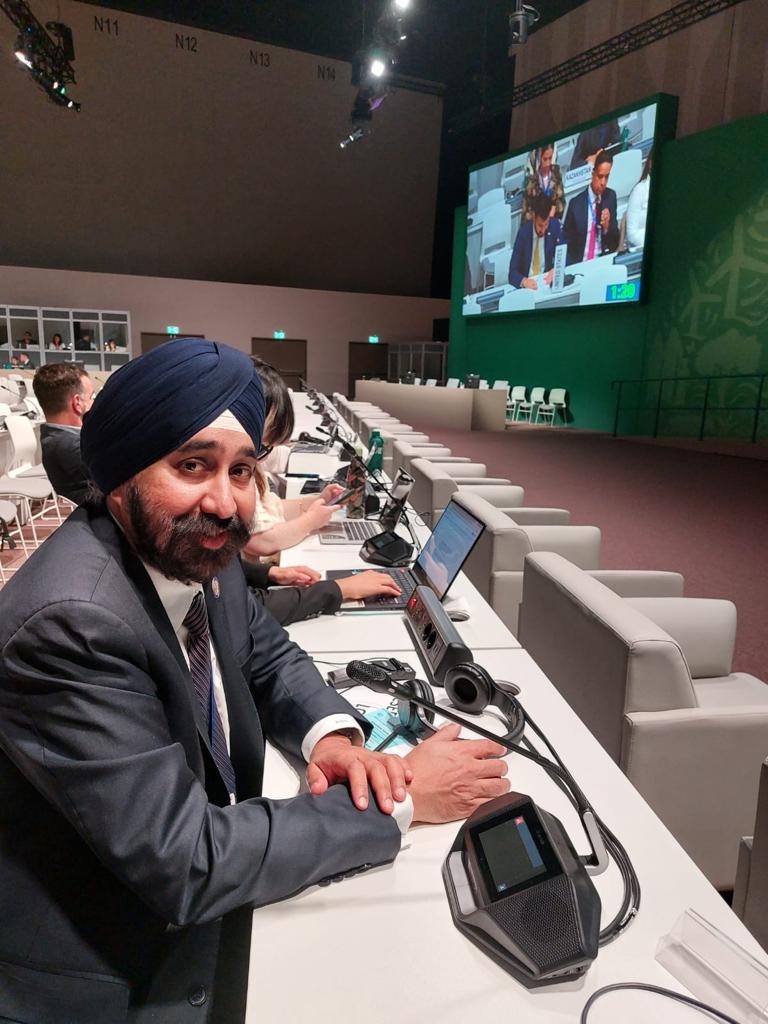
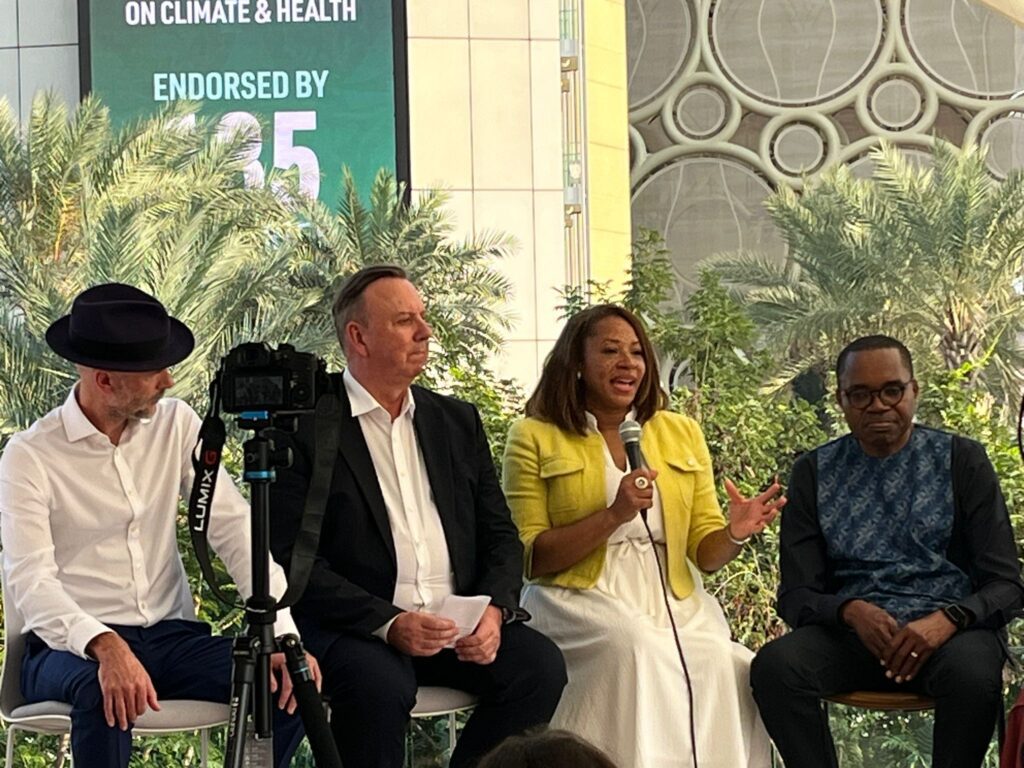
Taking the U.S. Local Story to the Global Stage
Across COP, U.S. mayors and county commissioners contributed to well over 100 sessions. ICLEI co-hosted many of them, with several highlights particularly showcasing the leadership of U.S. Cities:
- On December 1, former U.S. Vice President Al Gore opened the LGMA’s Pavilion with a rousing speech honoring the role of mayors in getting climate work done.
- On December 1, Mayor of Columbia, Missouri, Barbara Buffaloe represented the U.S. in the “Urban7” engagement group session, telling how cities in the G7 block are advancing climate action across the Global North.
- On December 2, ICLEI partnered with the State Department’s Special Representative for City and State Diplomacy, Nina Hachigian, the U.S. Conference of Mayors, C40, Climate Mayors, and Mississippi River Cities & Towns Initiative to host the only city-focused event in the U.S. Center. The event showcased innovation, such as Des Moines, Iowa, being the first in the nation to commit to 24/7 Carbon-Free Electricity. Mayor Satya Rhodes-Conway, Madison, Wisconsin; and Mayor Andrew Ginther, Columbus, Ohio, shared their high-impact actions.
- On December 5, Google Head of Product Impact, Brigitte Hoyer Gosselink, and Broward County Resilience Director, Dr. Jennifer Jurado, showed how data goes to work in cities on tree canopy and transportation modeling using Environmental Insights Explorer tool.
- On December 3 and 6, nature-based solutions and equitable access for nature were in the spotlight during two sessions hosted by ICLEI USA and Bezos Earth Fund. Mayor Lily Mei of Fremont, California; Mayor Lauren McLean of Boise, Idaho; Mayor Satya Rhodes-Conway of Madison, Wisconsin; and Mayor Errick Simmons of Greenville, Mississippi showed how they are “Greening America’s Cities.”
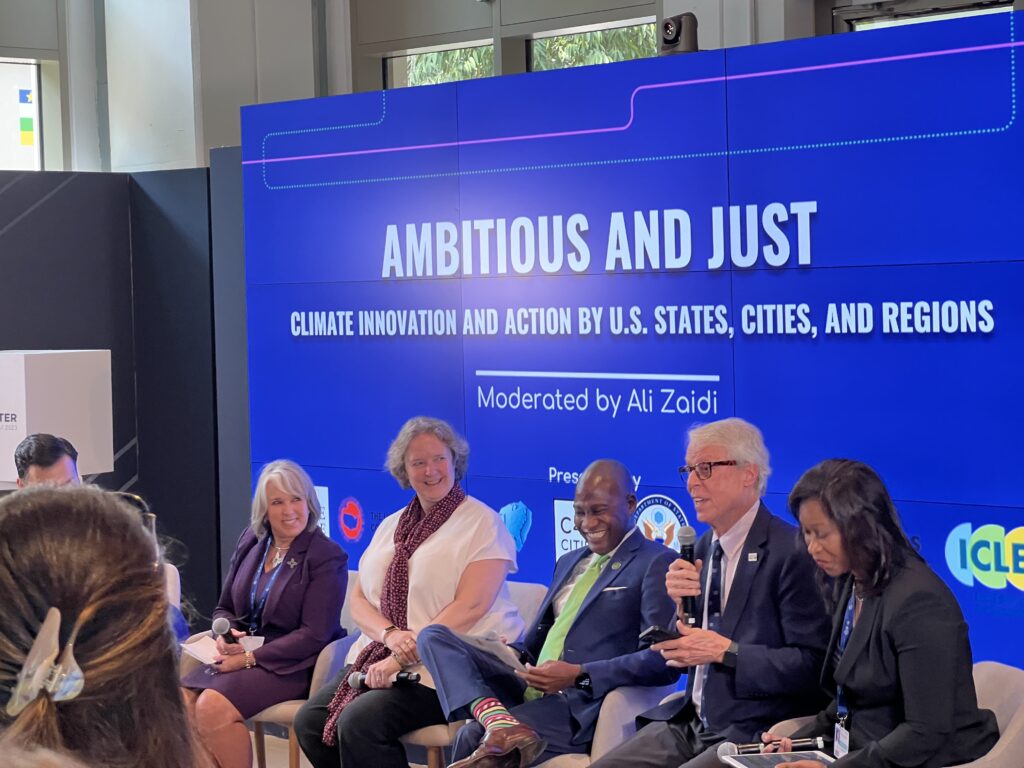
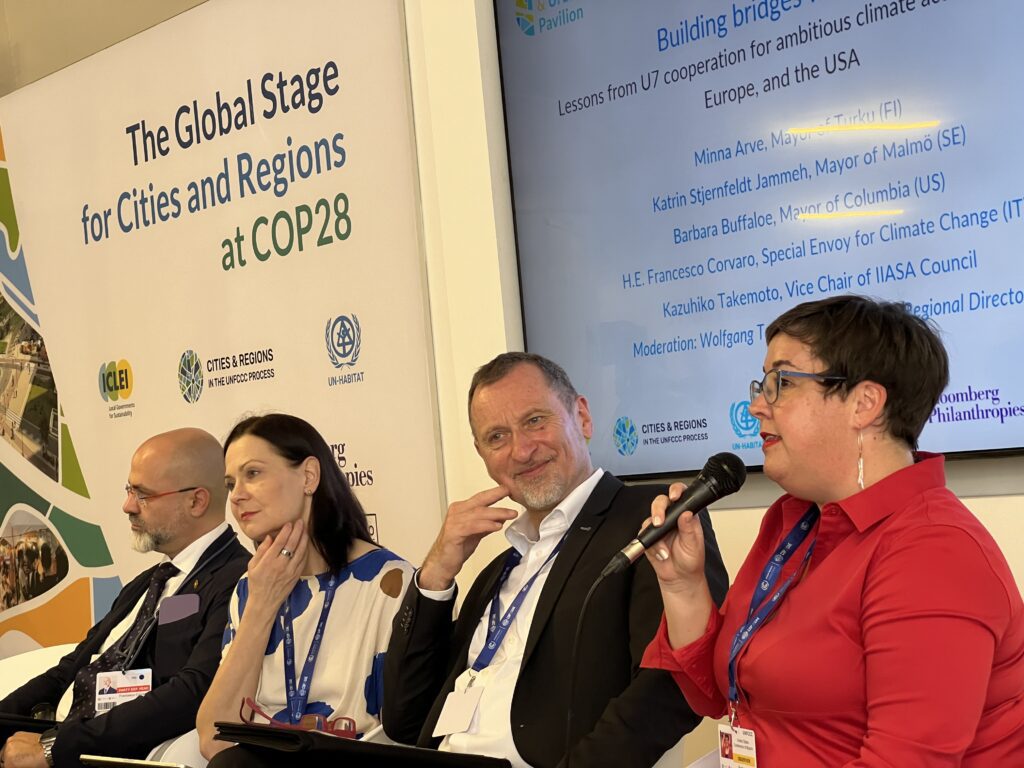
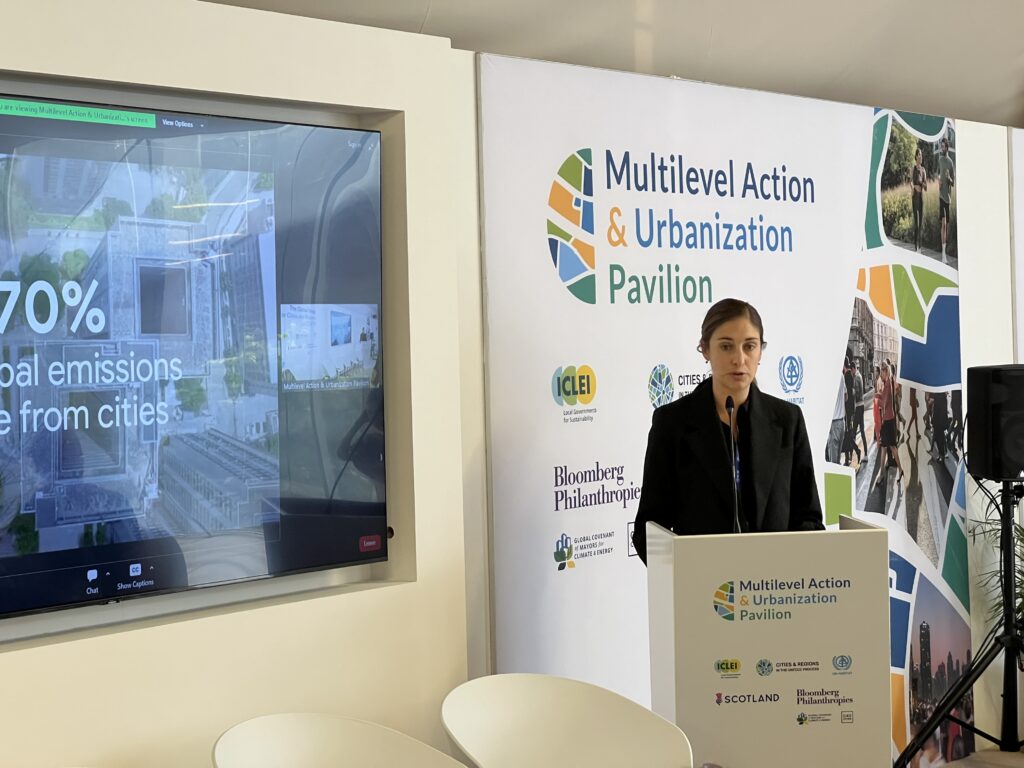
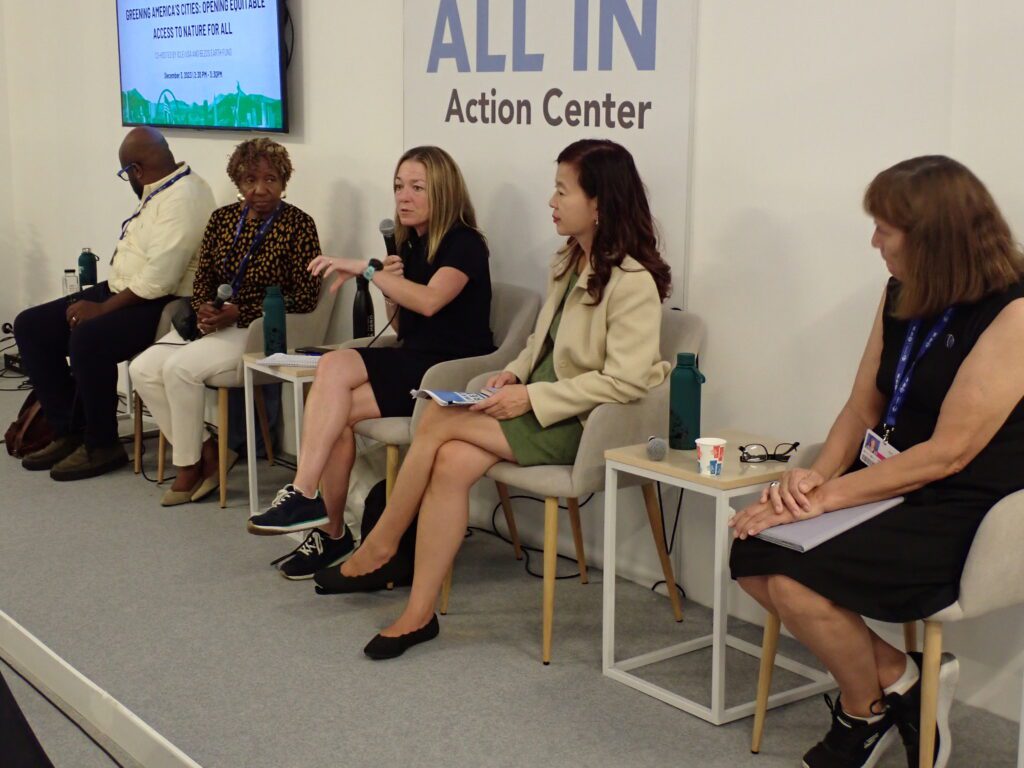
Hosting ‘Local Stocktake’ Mini-COPs At Home
Long before we arrived in Dubai, cities and towns had already been working toward an ultimate COP outcomes, by hosting their own “local stocktake” events as official contributions to the Global Stocktake.
Of the 26 contributing local stocktakes, four of them were in the U.S. — Broward County, Florida; Concord, New Hampshire; Denver, Colorado; and Hoboken, New Jersey — and oriented around three questions: Where is our community on meeting the goals of the Paris Agreement? Where do we want to go? How do we get there in a climate-just way?
Recognizing not everyone has the privilege or support to attend a COP, cities can bring the COP home to their hometowns with local stocktakes. ICLEI will continue our advocacy to call for these local stocktakes to be annual events — not recognized only every 5 years — in order to engaged hundreds of cities and meaningfully contribute to the next Global Stocktake.
Of course, more important than what happened during COP is what happens after! Throughout 2024, ICLEI’s technical support and advocacy strategy will reorient toward full-scale implementation, helping our members achieve their climate plans through on-the-ground action. We look forward to taking those success stories to COP29 next year.
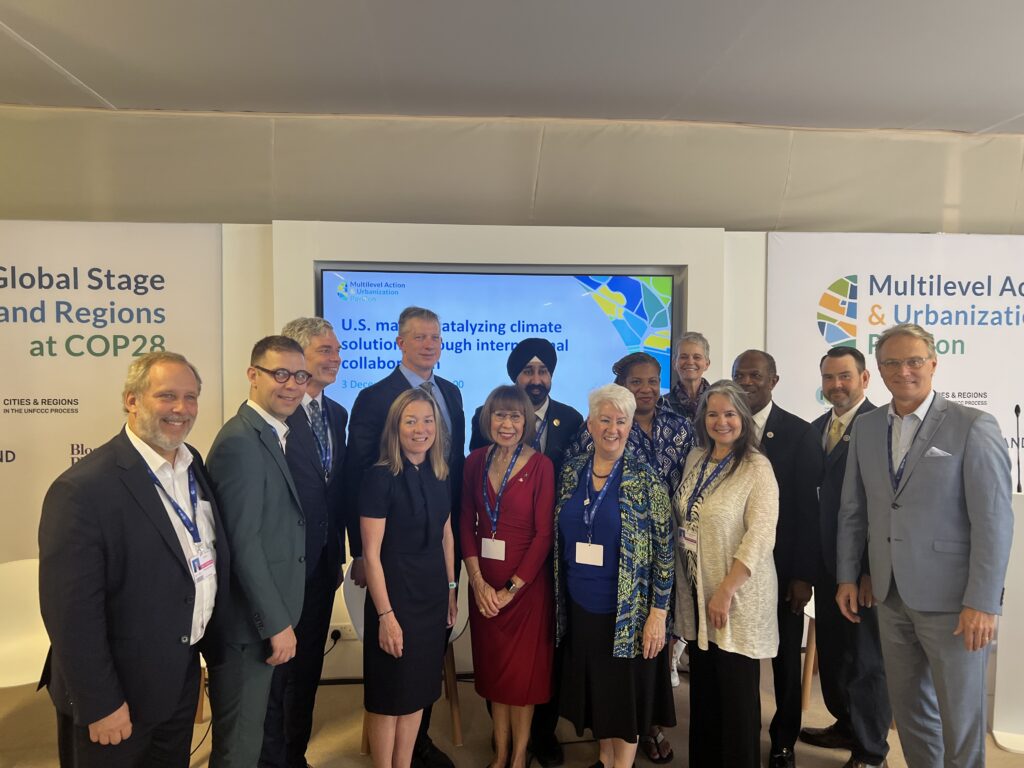
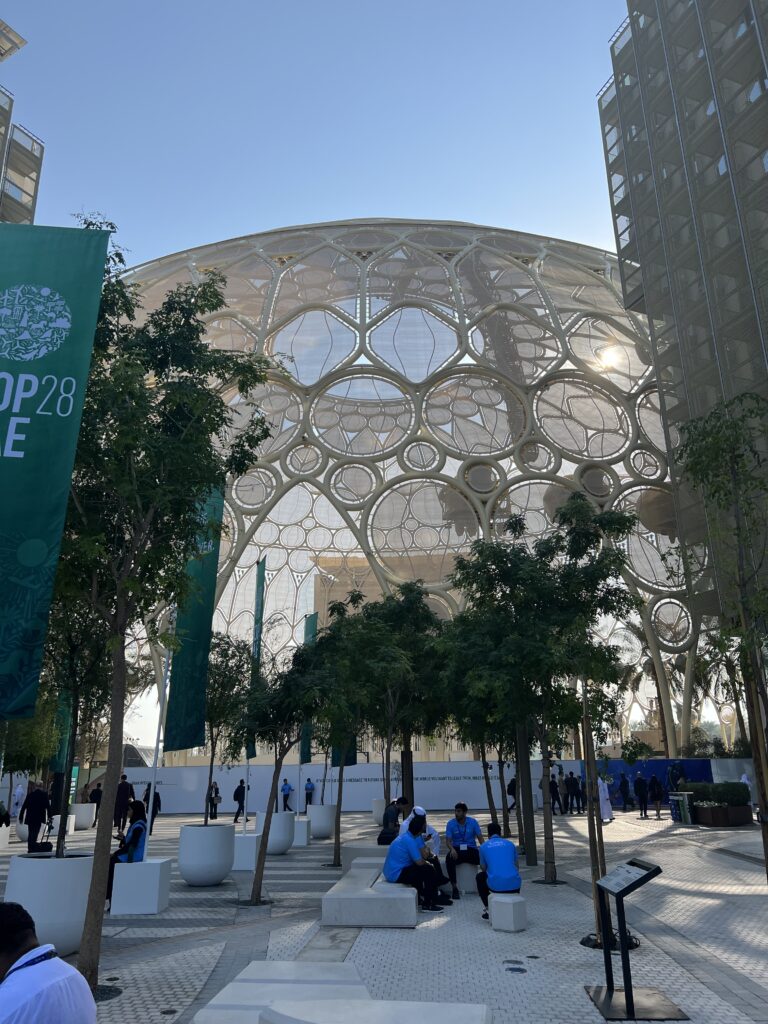
Kale Roberts is Senior Program Officer and advocacy lead for ICLEI USA, where he supports U.S. mayors and elected officials to engage with United Nations processes, leverage the U.S. federal government’s climate programming, and serve as sustainability leaders in their regions.